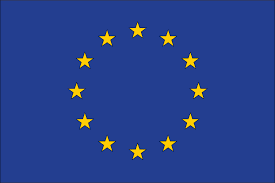Chemycal has been acquired by 3E
Learn MoreChemycal has been acquired by 3E
Learn MoreDiscover how Chemycal PRO helps you boosting your regulatory monitoring:

Context, Problem definition and Subsidiarity Check |
Context |
Food contact materials (‘FCMs’) include food packaging, everyday household items such as kitchen- and table-ware as well as machinery and surfaces used in food manufacturing, preparation, storage, transport and distribution. Whilst they are vital to the integrity and safety of the food supply chain, chemical substances can migrate from FCMs into food and thus contribute to consumers’ exposure to those substances. Therefore in order to protect consumers, Regulation (EC) No 1935/2004 sets basic EU rules for all FCMs, which aims to secure a high level of protection of human health, protect the interests of consumers and ensure that the internal market functions effectively. The Regulation requires FCMs to be manufactured so that chemical substances do not migrate into food that would endanger human health and sets other rules such as those on labelling and traceability. It also allows specific rules to be introduced for particular materials and establishes a process for the risk assessment of substances by the European Food Safety Authority (EFSA) and eventual authorisation by the Commission. This has been achieved primarily for plastic FCMs, whereby compositional requirements and a list of authorised substances together with certain restrictions such as migration limits, have been established. For many other materials, such as paper and cardboard, metal and glass materials, adhesives, coatings, silicones and rubber, specific rules do not exist at EU level and national legislation may apply. The basic provisions of the present EU legislation were introduced in 1976 but until recently had never been evaluated. Experience with implementing the legislation, feedback from stakeholders and evidence being collected through the ongoing Evaluation of FCM legislation indicate problems that are linked to the absence of specific EU rules, which leads to uncertainty about safety of some FCMs and internal market problems. Further specific EU legislation is supported by all stakeholders including EU Member States, the European Parliament, industry and non-Governmental organisations. However, there are also currently several fundamental issues present in the existing approach to regulating plastic FCMs at EU level. Legislation on FCMs is directly relevant for the success of key Commission policies under the EU Green Deal. In particular, the Farm to Fork Strategy commits to revise the FCM legislation in order to improve food safety and public health (in particular in reducing the use of hazardous chemicals); support the use of innovative and sustainable packaging solutions using environmentally-friendly, re-usable and recyclable materials, and contribute to food waste reduction. A new initiative is therefore also critical to support the Circular Economy Action Plan (CEAP) including a follow-up to the 2018 Plastics Strategy, to ensure packaging is re-usable and recyclable. It is also necessary to contribute to the ambitions of the Chemicals Strategy for Sustainability towards a toxic free environment, in particular concerning action related to the most hazardous chemicals as well as taking into account their cumulative and combinative effects. The COVID-19 pandemic has also highlighted the importance of FCMs in safeguarding food supply chains and ensuring EU food security in times of crisis. |
CONTINUE READING ON eur-lex.europa.eu
2013 © MyChemicalMonitoring. ALL Rights Reserved. About Us | Terms and Conditions